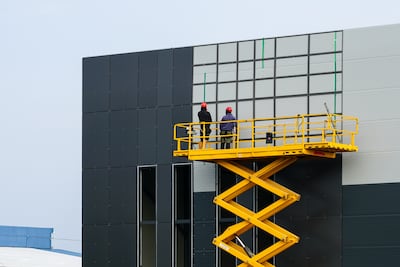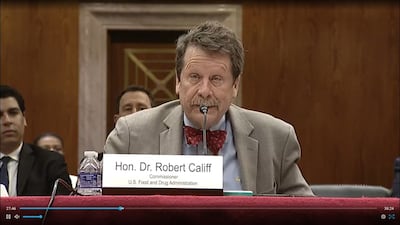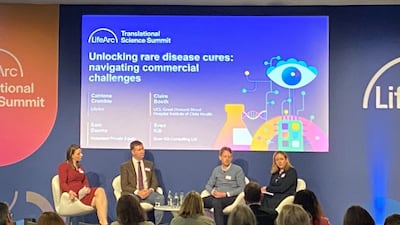Platform Technologies
Replimune's RP1 oncolytic immunotherapy became the third regenerative medicine to receive an FDA complete response letter this month as the agency appears to re-visit previous agreements about accelerated approval.
The UK drug regulator acknowledges that technology will “move on” and, as such, has designed its decentralized manufacturing regulation to be as “enduring” as possible. Experts from the MHRA explain what products are covered by the new framework and how it has been future-proofed.
Sarepta's rAAVrh74 vector, used in the marketed Duchenne muscular dystrophy gene therapy Elevidys and across the company's limb girdle muscular dystrophy pipeline, earned a platform designation as the lead LGMD candidate prepares for BLA filing.
Cellares’ fully automated cell therapy manufacturing platform is the first system to receive an Advanced Manufacturing Technology designation from US FDA
The UK’s drug regulator is developing a “clear and streamlined” regulatory pathway for individualized cancer mRNA immunotherapies.
mHealth data generated by smartphones and wearables show potential for enhancing the clinical evidence used in regulatory decision-making, but there are “notable challenges” that may hinder the use of such data, EU regulators say.
Many platform designation requests have been from sponsors eager to cite other sponsors’ products, but CBER Director Peter Marks said in an interview with the Pink Sheet his office likely is years away from accepting those applications.
CBER Director Peter Marks outlines a streamlined process to approval for treating different mutations of the same gene. NCATS’ Philip Brooks tells the Pink Sheet the approach avoids the need to “start from scratch for every new mutation.”
New draft guidance defines the necessary components of a platform technology designation request, including that sponsors demonstrate how it will save the FDA review time.
CBER’s Nicole Verdun said the FDA is using the principles of the platform approach in situations that don’t qualify for the agency’s new incentive.
The FDA commissioner said an H5N1 vaccine can be developed from the same mRNA platform used to create the COVID-19 vaccines, but funds are needed to ensure production can begin quickly if a human outbreak occurs.
Developing drugs for some rare diseases is “just not commercially feasible,” meaning that alternative approaches, such as funding through venture philanthropy and not-for-profit models, need to be explored, a gene therapy professor has said.
European regulators are working with global partners to tackle challenges that sponsors face during “N-of-1” trials, where medicines are personalized to the individual, and looking at the regulation of platform technologies.
Supporting ‘n of 1’ gene therapy development, the playbook from a Foundation for the National Institutes of Health-backed consortium aims to help investigators who are not traditional product sponsors prepare for meetings with US FDA and IND submissions.
A decade later, another MIT retreat explores factors behind slow adoption of technologies touted in the first – and how the barriers could be overcome to deliver higher-quality, more shortage-proof generic drugs.
FDA’s Peter Marks says educating academics about CMC would help them understand why it is necessary to do things in a standardized way. He predicts the field will move away from individual manufacturing platforms in the next five to 10 years.
Stakeholders propose centralized oversight approaches for managing quality of “like-for-like” fleets of self-contained manufacturing units that could roam the US – or the world. The US FDA shares the industry’s thinking on how best to adapt the site-focused regulatory scheme it enforces to the emerging variety of distributed manufacturing systems.
Nearly four years after introduction and a half-dozen legislative attempts, proposal to establish academic centers of excellence – hoped to help usher in a renaissance in US pharmaceutical manufacturing – secures passage in omnibus spending bill. New law also supports emerging technologies, building on the FDA’s Critical Path Initiative.
What happens when manufacturing plants are moving targets? When quality systems are at once more centralized and dispersed? When plant operators are health care workers? Agency wants input before settling on the answers.
US legislation could advance new manufacturing platforms for drugs and biologics with academic R&D and workforce development and in turn spur domestic growth.




















